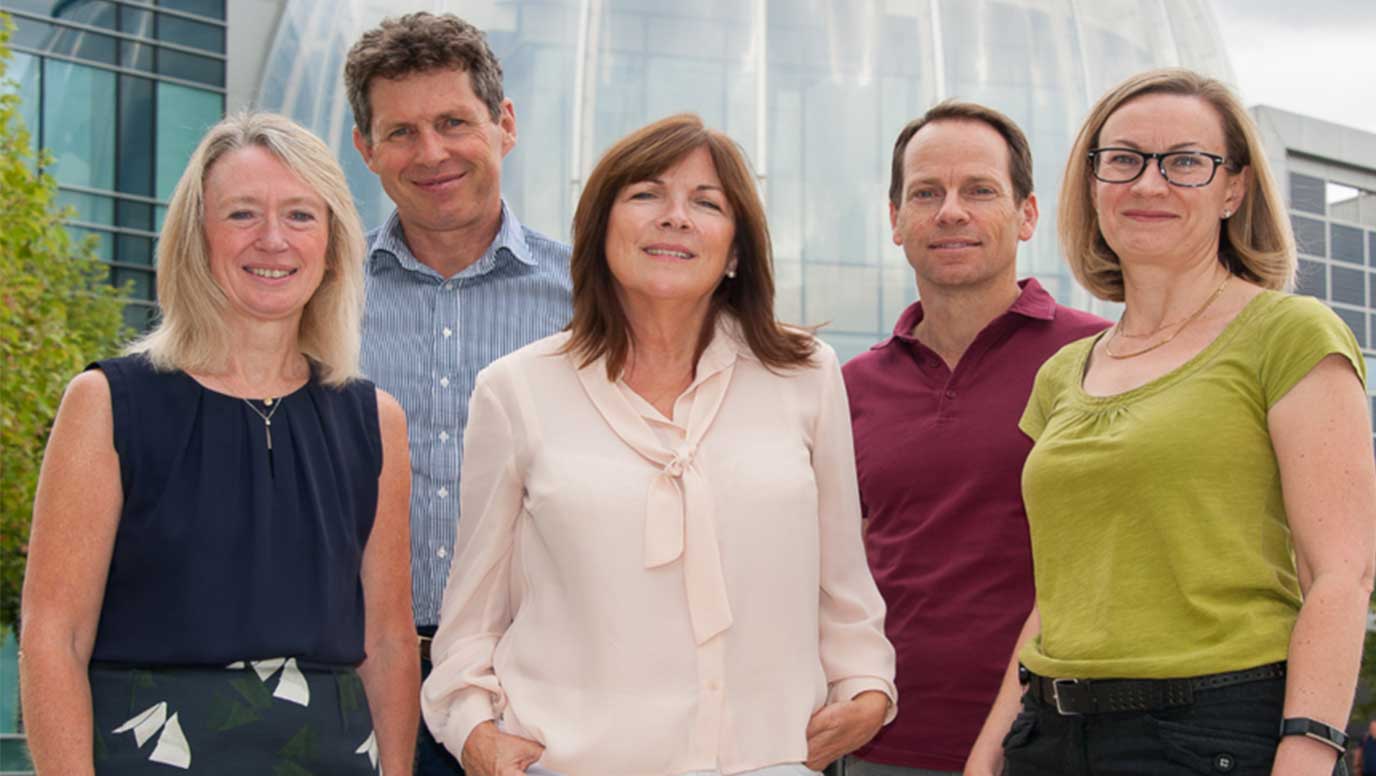World-first non-hormonal treatment in its class for menopause symptoms gains UK approval

The MHRA has approved elinzanetant (branded Lynkuet™) for the treatment of moderate to severe hot flushes and night sweats associated with menopause. Also known as vasomotor symptoms, these affect a significant proportion of women and can have a notable impact on daily life.
Elinzanetant is the first dual NK-1,3 antagonist treatment for menopause symptoms to receive regulatory approval anywhere in the world, introducing a new class of therapy for managing these symptoms.
The treatment was developed through Phase 2 by KaNDy Therapeutics, co-founded by Dr Mary Kerr and Dr Mike Trower while based at Stevenage Bioscience Catalyst (SBC). KaNDy was formed in 2017 as a spin-out from NeRRe Therapeutics, which remains based at SBC. In 2020, KaNDy was acquired by Bayer, which has since led the late-stage development, global regulatory submissions and commercialisation.
Dr Kerr, who is CEO of NeRRe Therapeutics, Co-founder of KaNDy Therapeutics and member of the BioInnovation Institute’s Women’s Health Innovation Panel, said: “This is a real success story for SBC, UK biotech and women’s health. The ex-KaNDy team are thrilled to have played a part in the development of elinzanetant.
“We are grateful to our investors for their belief, to SBC for the excellent support, and to Bayer for delivering a comprehensive Phase 3 data package to secure approval. Women’s health has been chronically underfunded for decades.
“A recent McKinsey report concluded that closing the gender health gap could reduce the time women spend in poor health by almost two-thirds and add up to $1 trillion to the global economy by 2040.”
Andrew Waters, CFO and Interim CEO, Stevenage Bioscience Catalyst, added: “We warmly congratulate Bayer on this important milestone. We also thank and acknowledge Drs Kerr and Trower for their role in founding KaNDy Therapeutics and leading the early-stage development of elinzanetant here at SBC.
“It is a clear example of how collaboration between entrepreneurial scientists, investors and global industry can help move research closer to patients.”
Since opening in 2012, SBC companies have raised more than £4 billion to develop and commercialise new medicines. Located in the UK’s Golden Triangle and co-located with GSK, SBC provides lab and office space, mentoring and business support, alongside access to a collaborative community of researchers and investors.

